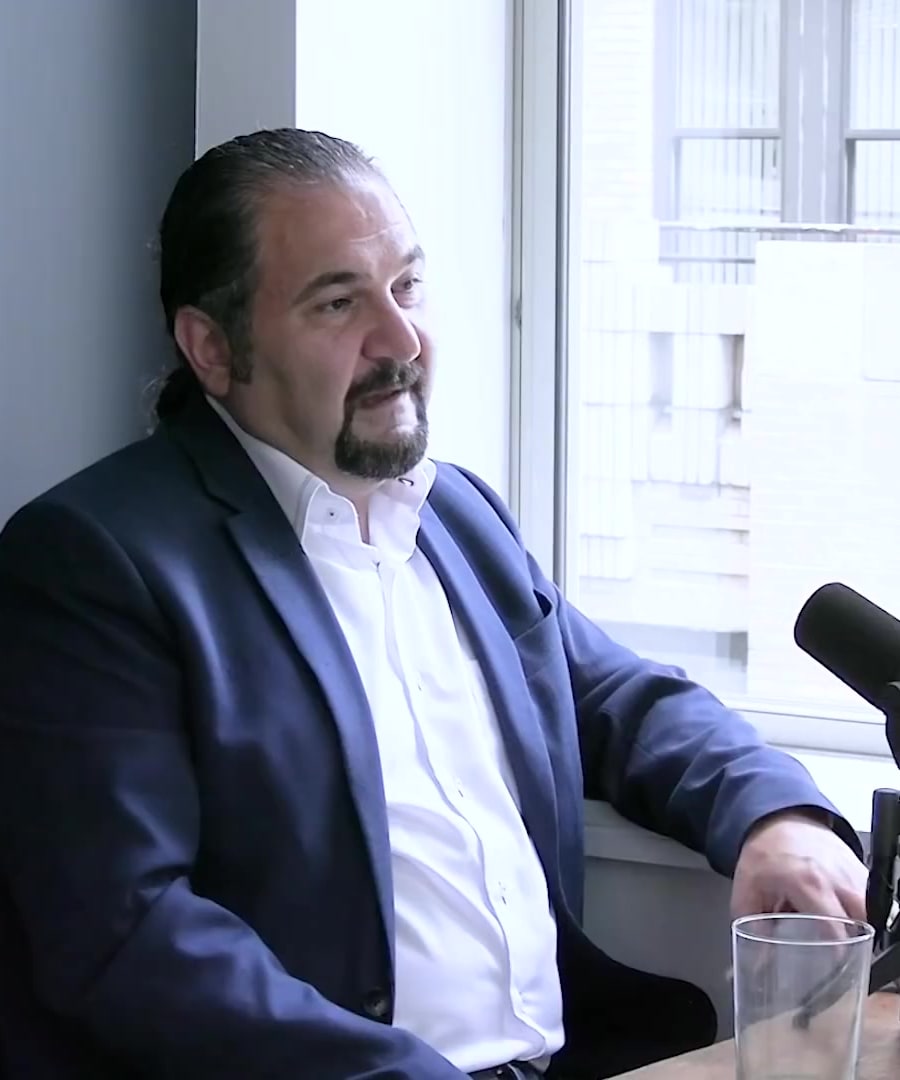What are the top 3 most important tips for good sleep
Sources:
Here are the top 3 important tips for good sleep based on what has discussed:
-
Optimize Light Exposure: Keep your environment with low light before bedtime. Avoid caffeine in phase two of the day to help get into a deeper state of rest where habit formation and neural plasticity can occur. Minimize light exposure if you wake up during the night, as light inhibits melatonin which can make it hard to fall back asleep 1.
-
Maintain a Low Temperature Environment: Setting a cooler temperature in your bedroom can facilitate the onset of sleep and maintain deeper sleep cycles. This is part of creating a conducive sleep environment that promotes quality rest 1.
-
Have a Wind Down Routine: Approach sleep like landing a plane, with a routine that gradually prepares you for rest. This can include activities like light stretching, meditation, or reading, but avoid engaging with technology or television as they can provide too much light and be activating 2. It's important to discover what works best for you personally and maintain consistency with your nighttime routine.
These tips focus on adjusting light exposure, temperature, and establishing regular pre-sleep habits to foster good sleep hygiene.
RELATED QUESTIONS-
What about consistent bed and wake times? I thought that, ans morning sunlight were the most important
Sources:
Indeed, consistent bed and wake times along with morning sunlight exposure are critical factors for good sleep. has emphasized these points on the :
-
Consistent Sleep Routine: Striving for a relatively consistent sleep routine is essential for regulating mood and mental health, and for improving overall sleep quality. Try to get to sleep within plus or minus one hour of a regular bedtime to avoid issues with energy regulation and mood disturbances 1.
-
Morning Sunlight Exposure: Viewing morning sunlight shortly after waking is the most powerful stimulus for wakefulness throughout the day and has a significant positive impact on the ability to fall and stay asleep at night. This sets your circadian rhythm effectively 2. If you wake up before sunrise, turn on bright lights indoors and then seek outdoor light once the sun is up 3.
-
Light Throughout the Day: Additionally, viewing sunlight throughout the day, especially during morning hours, sets timers for wakefulness and eventual melatonin release. This helps regulate sleep cycles and aligns with the body's natural circadian rhythm 3. Evening sunlight exposure can help offset the negative effects of artificial light exposure at night 4.
Even without explicit ranking, these practices form the crux of good sleep hygiene as described by Huberman, underscoring light exposure's centrality in sleep regulation.
RELATED QUESTIONS-
Can you provide a detailed sleep routine based on scientific research?
Sources:
Based on the scientific research discussed in the , a detailed sleep routine can include the following steps:
-
Wind Down Routine: Establish a calming pre-sleep routine such as light stretching, meditation, or reading. Avoid stimulating activities like watching television in bed due to excessive light and activation 1.
-
Morning and Daytime Sunlight Exposure: Seek natural light exposure in the morning and throughout the day to set your circadian rhythm. It's one of the most important tools to support sleep, as listed in the free toolkit available on the Huberman Lab website 2.
-
Evening Alertness Anticipation: Understand that a natural increase in alertness occurs about an hour before bedtime. Use this time for mundane tasks if necessary, but do not engage in stimulating activities that could disrupt your sleep routine 3.
-
Hydration and Electrolytes: Ensure proper hydration and adequate electrolytes, as these are crucial for overall health and can impact sleep quality 4.
-
Proper Mattress and Pillow: Invest in a mattress and pillow that suit your sleeping style to maximize comfort and support during sleep 4.
-
Avoid Caffeine Late in the Day: Caffeine can interfere with the ability to fall and stay asleep, so it should be avoided in the afternoon and evening 5.
Remember, this routine should be tailored to individual needs and preferences. What works for one person might not work for another, so it may take some experimentation to find the perfect routine for you. It's also important to stick with the routine consistently, as this can further enhance its effectiveness.
RELATED QUESTIONS-
How can I tailor a sleep routine to my personal needs?
Sources:
To tailor a sleep routine to your personal needs, consider the following steps based on insights from and the :
-
Identify Sleep Preferences: Understand whether you sleep on your side, back, or stomach and if you tend to run hot or cold at night. These factors can influence the type of mattress and bedding that would best suit you 1.
-
Personalized Recommendations: Consider platforms that offer personalized health insights, such as blood and DNA profiles, which can guide behavioral or nutritional changes to improve sleep 2.
-
Optimal Sleep Environment: Adjust your bedroom environment to your needs. This could involve temperature regulation—making it cool at the beginning of the night and gradually warming it towards morning—helping with sleep depth and alertness upon awakening 3.
-
Trial and Error: Engage in self-experimentation by tracking your sleep patterns and behaviors. This can reveal the specific factors that affect your sleep quality. Adjust one or two variables at a time to identify what works best for you 4.
-
Understand Product Features: Research products that are designed with performance in mind, such as lightweight eyewear or sleep technology like smart mattress covers, to ensure a pleasant and uninterrupted sleep experience 5.
Remember, creating a sleep routine tailored to your needs is a personal process that may require ongoing adjustments and self-awareness. Use the feedback from various products and lifestyle modifications to discover the combination that leads to the best sleep quality for you.
RELATED QUESTIONS-
Understand more about tracking sleep patterns.
Sources:
Tracking sleep patterns can provide insights into sleep quality and potential areas for improvement. Here are key points on sleep tracking derived from discussions on the :
-
Sleep Stack:
- Dr. uses and suggests certain supplements, known as a 'sleep stack', that may aid in sleep, including magnesium threonate, theanine, and apigenin 1.
- Tracking sleep allows you to see if supplements help improve specific aspects of your sleep quality.
-
Understanding Sleep Trackers:
-
Behavioral Impact of Data:
- Devices that inaccurately estimate your sleep quality might psychologically affect your perceived energy levels. If devices report a poor sleep score, it may bias you to feel more groggy, regardless of actual sleep quality 4.
-
Physiology vs. Devices:
- Trusting your physiology may be just as important as the data. Even with sleep trackers, personal feelings of restfulness or fatigue should not be discounted 2.
-
Electrolytes and Temperature:
- Maintaining proper electrolyte balance can impact sleep quality, as can controlling the sleeping environment temperature for optimal sleep 5.
-
Technology Advancements:
- Emerging technologies enhance the accuracy of trackers through more precise measurement tools, like continuous glucose monitors that inform diet and sleep connection 6.
These clips suggest that while sleep trackers can be helpful, it's also critical to evaluate how you feel subjectively and give appropriate weight to personal sensations of restfulness or tiredness. Using sleep tracking data as part of a holistic approach that includes self-awareness and possibly professional insight may be the most effective path for tailoring a sleep routine to personal needs.
RELATED QUESTIONS-
If I only focused on one thing to improve my sleep what should it be
Sources:
To focus on one key practice for improving your sleep, prioritizing your sleep environment, particularly the temperature, appears pivotal according to and as mentioned on the . It is emphasized that a properly controlled sleep environment can facilitate the drop in core body temperature needed for falling and staying asleep, while also aiding in waking up feeling refreshed 1. also echos the importance of managing temperature for sleep quality 2.
Therefore, if you are looking to concentrate on just one modification to improve your sleep, ensuring that your sleep environment, particularly the temperature, is conducive to good sleep is strongly recommended. This can involve measures such as using cooling technologies for beddings, maintaining a cooler room temperature, or incorporating a warm bath in your evening routine as a way to facilitate body temperature reduction for better sleep onset and quality.
RELATED QUESTIONSHow can i optimise light exposure
Sources:
To optimize light exposure:
-
Morning Sunlight: Aim for 2-10 minutes of bright light, ideally sunlight, every morning shortly after waking. This helps boost wakefulness through cortisol release and sets a timer for the onset of melatonin later in the evening 1.
-
Avoid Bright Light at Night: Refrain from bright artificial lights, especially overhead lights, between 10:00 p.m. and 4:00 a.m., as it can disrupt your ability to fall and stay asleep 2.
-
Evening Sunlight: Exposure to low solar angle light or evening sunlight can delay your circadian clock a bit, preventing too early waking and maintaining a regular sleep-wake cycle 3.
-
Limit Light at Night: Dim the lights as it gets later to support sleep. If you're exposed to bright light at night, viewing the sunset or late afternoon sunlight can mitigate the effects on melatonin by about 50% 4.
-
Work with Bright Light Overhead: If you wish to remain alert during the day, bright overhead lights can be beneficial. Adjusting light intensity and position can help reinforce natural circadian rhythms 5.
-
Use Appropriate Light Devices: If natural sunlight is not an option, a bright light device can be used, especially in the morning. Be cautious with dawn alarm lights; instead, you can use a bright LED pad designed for drawing 5.
By adhering to these principles, you can leverage light exposure to support your circadian rhythms and improve both sleep quality and general alertness throughout the day.
RELATED QUESTIONS-
How exactly does temperature affect sleep quality?
Sources:
Temperature plays a crucial role in sleep quality by affecting your ability to fall asleep, stay asleep, and wake up feeling refreshed. Your core body temperature must decrease by approximately one to three degrees Celsius to initiate and maintain deep sleep. Conversely, to wake up, your body temperature needs to rise by about one to three degrees. This temperature fluctuation is part of your circadian rhythm, which cycles over a 24-hour period 1 2.
The lowering of body temperature at night is facilitated by the dilation of blood vessels in the skin, particularly in glabrous (non-hairy) skin areas like the palms, soles of the feet, and face, which allows heat to be dissipated. If your sleeping environment or bedding is too warm, it can prevent this temperature drop and disturb your sleep. This is why avoiding heavy blankets, sleeping in a cool room, or using bedding technologies that control temperature, such as the Eight Sleep mattress cover, can significantly enhance sleep quality 1 3 2.
Moreover, deliberate cold exposure can be used to align with the body's natural temperature regulation, but the timing of cold exposure is important. It is generally recommended to avoid cold exposure late in the evening if you struggle with sleep, as it could increase your body temperature when it should be cooling down 4.
To optimize your pre-sleep temperature, you can also take a warm bath or shower before bed to initially raise your body temperature, after which the natural cooling of your body can aid in falling asleep faster 5.
RELATED QUESTIONSWhat are more tips for optimizing my sleep environment?
Sources:
To enhance your sleep environment, consider the following tips:
- Keep the Room Dark: Use blackout curtains or an eye mask to ensure darkness, as light can disrupt your circadian rhythm and affect melatonin production 1.
- Maintain a Cool Temperature: As mentioned earlier, cooler temperatures can help facilitate the body temperature drop necessary for sleep. Aim for a room temperature around 65 degrees Fahrenheit (18.3 degrees Celsius) 2.
- Reduce Noise: Earplugs or white noise machines can help mask disruptive sounds that might wake you up or prevent you from falling asleep 1.
- Manage Air Quality: Ensure good ventilation to reduce CO2 buildup. Keeping your bedroom door or a window open slightly can help improve air quality 3.
- Limit Pet Access: Pets in the bed or bedroom might contribute to allergies or disrupt sleep. Consider keeping them out or limiting their access if you have sleep difficulties 4.
- Clean Bedding Regularly: Wash your sheets and pillowcases at least once a week to reduce allergens 4.
- Negative Ionization: Experiment with negative ionization, which can be higher near bodies of water and may contribute to better sleep. You can research ways to increase the negative ion concentration in your home 1.
Implementing these suggestions and paying attention to your individual responses should help create a more conducive environment for restful sleep.
RELATED QUESTIONSTell me more about light exposure strategies.
Sources:
To further optimize your sleep environment for better quality sleep, consider the following tips from :
- Reduce disruptions like air conditioning or heaters that turn on and off, as these can affect sleep stages 1.
- Keep the room dark and free from light pollution 1.
- Routine cleaning of sheets can reduce allergens 2.
- Remove pets from the bedroom if they contribute to allergies or disrupt sleep, even though opinions differ on this recommendation 1.
- Consider the impact of negative ion concentration. Coastal locations have higher negative ion concentrations which may improve sleep quality. Although there are negative ionization machines available, suggests looking into low-cost ways to increase negative ion concentration in your bedroom 1.
- Pay attention to CO2 levels in the bedroom. Rooms with poor ventilation can build up CO2, which disrupts sleep. Ensure your sleep environment has good ventilation 2.
Get these elements right, and you are likely to see an improvement in your sleep quality.
RELATED QUESTIONSHow to optimise temperature throughout the day
It seems that there are no specific clips in the data that directly address strategies for optimizing temperature throughout the day. However, based on 's various discussions, we can still provide some general advice about temperature regulation based on principles he has shared in the context of sleep and alertness:
-
Morning: Aim to get sunlight exposure within the first hour after waking up to help set your circadian rhythm. Natural light in the morning tends to be cooler (bluer), which helps increase alertness and mood.
-
Daytime: Maintain a comfortable, but not too warm, ambient temperature to support cognitive function and productivity. Excess heat can lead to decreased performance.
-
Evening: Prepare for sleep by lowering body temperature. A drop in core body temperature signals to the body that it’s time to sleep. You can facilitate this by taking a warm shower or bath 1-2 hours before bedtime, which helps to initiate this cooling by dilation of the blood vessels and heat dissipation.
-
Night: Keep your bedroom cooler (around 65-68° F or 18-20° C). This cooler temperature helps to maintain the lowered body temperature that is conducive to restful sleep and can improve sleep quality.
-
General: Stay hydrated, as hydration can affect your body’s ability to regulate temperature.
These suggestions can help optimize your alertness during the day and support your natural sleep-wake cycle. It's important to note that individual preferences and needs can vary, so it's good to experiment and find what temperatures work best for you throughout the day.
RELATED QUESTIONS-
Could you give me more detailed tips on temperature regulation for productivity and sleep?
Sources:
Here are more detailed tips on temperature regulation for productivity and sleep as discussed by :
For Productivity:
- Morning temperature: Your body temperature is at its lowest two hours before you wake up and rises as you wake up, helping you become alert. Try to match your environment to this natural increase for optimal productivity [1.
- Afternoon peak: Body temperature typically peaks in the afternoon and starts to drop later. Consider adjusting your activity levels to match this natural shift, engaging in more intense activities when your temperature is higher [1.
For Sleep:
- Evening cooldown: As body temperature drops by one to three degrees in the evening, this signals your body it is time to sleep. Use deliberate heat exposure like warm showers, baths, or saunas, followed by cooling, to facilitate this temperature drop and promote sleep onset [2 3.
- Sleeping environment: Lower room temperature at night to aid in the natural decrease in core body temperature crucial for sleep. A controllable mattress cover, like Eight Sleep, can help maintain optimal sleeping temperature [3.
- Utilizing glabrous skin: Use the unique properties of your palms, face, and soles to regulate body temperature. If you're too warm, extend a hand or foot out from the blankets to cool down. This can help with falling asleep or returning to sleep if you wake up during the night. If you're too cold, keeping socks on could be beneficial [3.
- Combatting evening alertness: If you're too alert in the evening, perhaps from late exercise or caffeine intake, using the heat then cool-off technique with a hot bath or shower can lower your core body temperature and calm the nervous system, preparing you for sleep [3.
Remember, these tips are based on general findings and research discussed by Dr. Huberman. Individual responses may vary, so it may be beneficial to experiment and see what works best for you.
RELATED QUESTIONSways to increase negative ion concentration in bedroom
Sources:
To increase the negative ion concentration in your bedroom, which can potentially enhance your sleep quality, here are some ideas discussed by :
- Seek out negative ionization machines: You can find devices designed to create negative ions in the environment.
- Apply low or no-cost methods: There are simple strategies you can look up online that increase negative ions without incurring cost. While the exact methods aren't specified in the clip, typical approaches might include using Himalayan salt lamps, growing certain types of indoor plants, or simply opening a window to allow fresh air (which often contains more negative ions, especially after a storm or near natural settings) into the bedroom.
- Plan for an entire episode: Dr. Huberman has mentioned that they may do a full episode specifically about this topic in the future, so keeping an eye on new episodes could provide additional strategies.
Dr. Huberman points out that the environment where you sleep has a variety of factors that can influence sleep quality, and small changes can have a significant impact on consistent sleep quality, which in turn can transform your daily life 1.
RELATED QUESTIONS
What are the top 3 most important tips for good sleep
- RELATED QUESTIONS
What about consistent bed and wake times? I thought that, ans morning sunlight were the most important
- RELATED QUESTIONS
Can you provide a detailed sleep routine based on scientific research?
- RELATED QUESTIONS
How can I tailor a sleep routine to my personal needs?
- RELATED QUESTIONS
Understand more about tracking sleep patterns.
- RELATED QUESTIONS
If I only focused on one thing to improve my sleep what should it be
- RELATED QUESTIONS
How can i optimise light exposure
- RELATED QUESTIONS
How exactly does temperature affect sleep quality?
- RELATED QUESTIONS
What are more tips for optimizing my sleep environment?
- RELATED QUESTIONS
Tell me more about light exposure strategies.
- RELATED QUESTIONS
How to optimise temperature throughout the day
- RELATED QUESTIONS
Could you give me more detailed tips on temperature regulation for productivity and sleep?
- RELATED QUESTIONS
ways to increase negative ion concentration in bedroom
- RELATED QUESTIONS



































